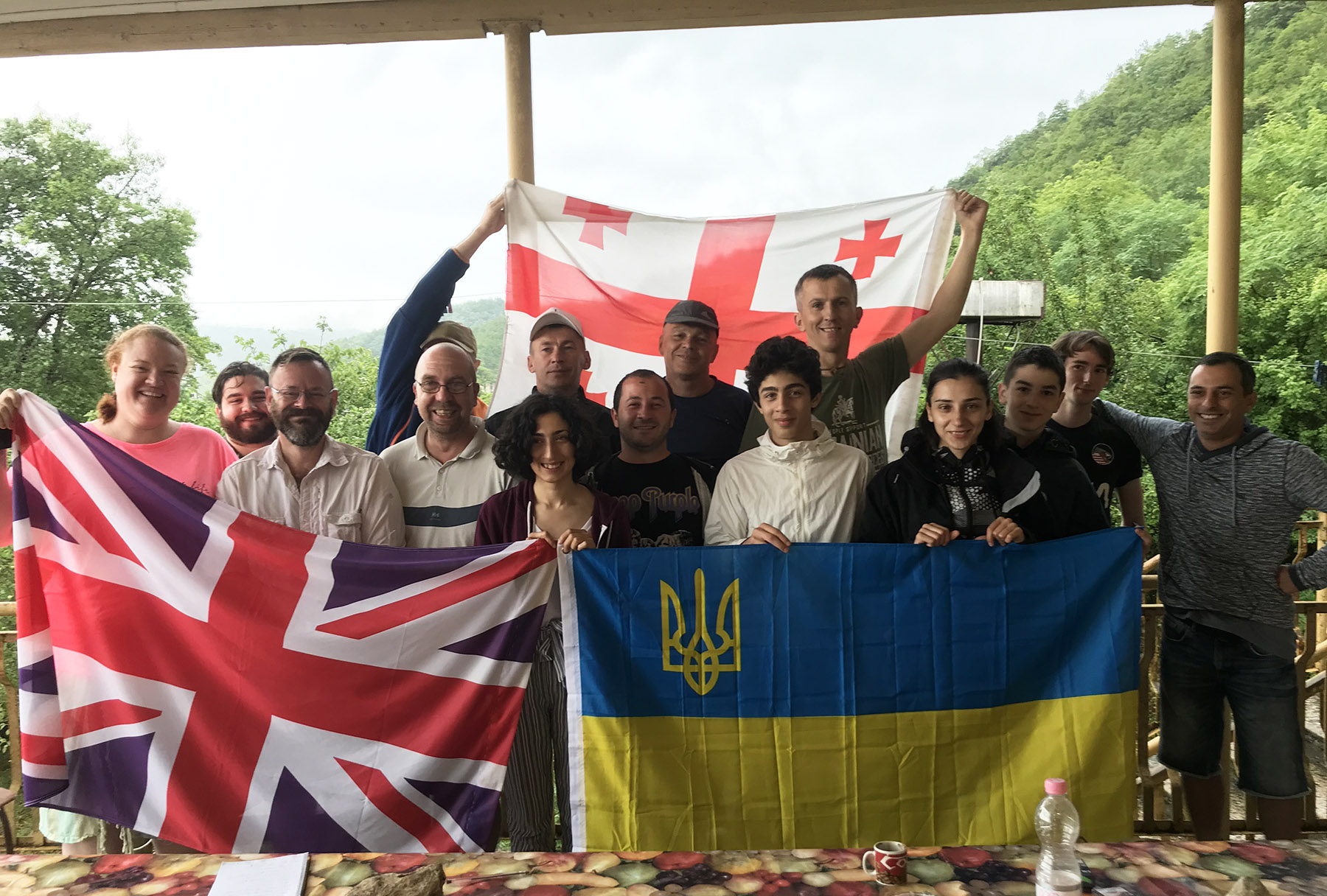Heritage for Heroes project
A pioneering interdisciplinary research project that has sought to evaluate the physical and mental benefits for military veterans of participating in archaeological fieldwork.

About the project
Background
Heritage for Heroes is a pioneering interdisciplinary initiative aiming to help former service personnel develop new skills as they recover from injuries and illnesses, and as they make the transition from military to civilian careers. The initiative was conceived by Dr Paul Everill, Senior Lecturer in Applied Archaeology, and Giles Woodhouse, an archaeologist and retired Lt Colonel, then Head of Recovery South at Help for Heroes’ Tedworth House Recovery Centre in Wiltshire. The idea was inspired by the Ministry of Defence initiative Operation Nightingale, which has used archaeological fieldwork to aid the recovery and skills development of service personnel and veterans injured in conflict since 2011.
Research
While claims have long been made that participation in archaeological fieldwork can improve the wellbeing of military veterans, most of the evidence offered in support of these claims has been anecdotal. There is a clear need for the disciplines of Archaeology and Psychology to engage critically with these initiatives, to assess rigorously the benefits and potential risks both to those participating and to the fragile historic environment, and to inform best practice.
Dr Paul Everill has therefore also teamed up with Dr Karen Burnell, a psychologist from Solent University, and Richard Bennett, a former Royal Marine and Director of Breaking Ground Heritage. They have carried out an interdisciplinary study of the wellbeing benefits of archaeology for veterans. The publication of this study, the largest of its kind to date, are forthcoming; see below. The results show clear decreases in the severity of the symptoms of depression and anxiety, and of feelings of isolation and lack of self-worth, along with an increase in mental wellbeing and sense of value. This may in part be explained by the fact that certain aspects of archaeological fieldwork, such as cameraderie and inclusiveness, working together outdoors in all weather, keen observation of the site and the landscape, and taking pride in working towards an overarching aim, will be familiar to veterans. Importantly it also provides opportunities for peer support – the sharing and processing of traumatic experiences with people who understand what they have been through.
Further research into the mechanisms and investigation of clinically significant change are needed. The next phase of work is supported by grants awarded by the Society of Antiquaries of London and the MARCH Network. Qualitative data from veteran participants in archaeological excavations will be collected and analysed, and a ‘sandpit’ event, bringing together a wide range of stakeholders and experts working in veterans’ mental health will set the agenda for future research. This builds on an initial meeting in 2018 when key stakeholders, including the Ministry of Defence, the Defence Archaeology Group, the National Trust, Breaking Ground Heritage, the NHS, the Council for British Archaeology, Step Together, the British Archaeological Jobs Resource, the Chartered Institute for Archaeologists and the Universities of Cardiff, Solent and Winchester met to discuss best-practice guidelines for veteran-focussed archaeology.
Postgraduate research
Under the supervision of Dr Everill, research student Zoe Umpleby is currently assessing the impact of museums and cultural heritage on the rehabilitation process of military personnel and veterans recovering from trauma.
Practical applications
The University of Winchester offers fee-waiver studentships to veterans and in 2016, we welcomed the first cohort of Heritage for Heroes students on undergraduate degree courses in Archaeology. Thanks to their commitment to and enthusiasm for studying at this level, they overcame their initial perception that Higher Education was out of reach for them. Since then the initiative has gone from strength to strength. In summer 2017, three veteran studentship-holders joined Dr Everill's Anglo-Georgian Expedition to Nokalakevi project, working alongside other students as well as five Georgian veterans; the need for innovative recovery/rehabilitation pathways for veterans is particularly acute in Georgia. In 2019 a total of 12 veterans lived and worked alongside Georgian, British, and American staff and students over the course of the expedition’s month-long field season in Nokalakevi, western Georgia.
Recognition
The University of Winchester has been awarded the Armed Forces Covenant Employer Recognition Scheme Bronze Award in recognition of its support for the armed forces community and their families. The award is given to organisations whose values are in line with the Armed Forces Covenant and which support those men and women who serve, or have served, in the armed forces and their families. Read more about the award.
Team
Principal Investigator
Dr Paul Everill, Senior Lecturer in Applied Archaeology, Department of Archaeology, Anthropology and Geography
Co-Investigators
- Dr Karen Burnell, Senior Lecturer in Psychology, School of Sport, Health, and Social Sciences, Solent University
- Richard Bennett, Director, Breaking Ground Heritage
- Dr Stephen Humphreys, CEO, American Veterans Archaeological Recovery
Output
Forthcoming June 2022: Archaeology, Heritage and Wellbeing: Authentic, Powerful and Therapeutic Engagement with the Past, edited by Paul Everill and Karen Burnell (Taylor & Francis Ltd)
Public Engagement
Events
On 5 July 2024, Dr Paul Everill will be a keynote speaker at the event Using Archaeology for Recovery, a Seminar/Training Day organised by Bournemouth University. Speakers with experience of running projects that assist those who have suffered from trauma, especially on the battlefield, will share their knowledge with those who wish to run similar projects. Find out more and book your place.
Media
'Soldiers dig deep to defeat their demons', The Times, Monday 23 March 2020
Funding
- Society of Antiquaries of London, 2019
- Solent University, 2019
- MARCH network, 2019 and 2020
Background image: Dr Paul Everill (third from left) with the international team at the Nokalakevi site in western Georgia, during the summer 2019 field season.
